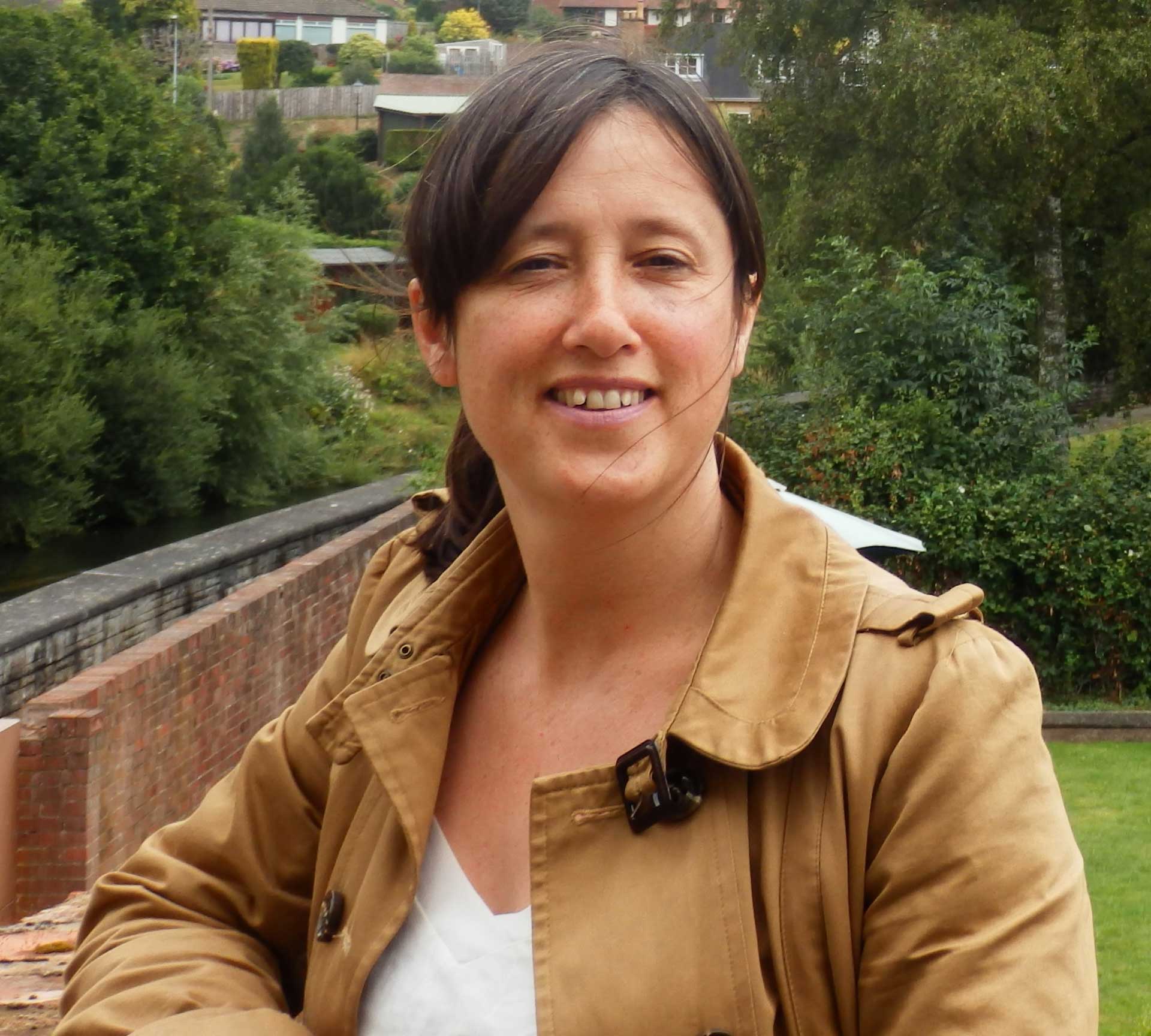News
AM leads debate on safety of children online
 REBECCA EVANS AM, Assembly Member for Mid and West Wales, has led a debate at the National Assembly for Wales on the safety of children online.
REBECCA EVANS AM, Assembly Member for Mid and West Wales, has led a debate at the National Assembly for Wales on the safety of children online.
Mrs Evans brought forward the debate at the Senedd to explore the dangers facing children online following a series of tragic and high profile cases tied to internet use, and the publication of several pieces of research highlighting the challenges facing children online.
Mrs Evans told the Assembly that although the role of internet service providers, search engines and social networks in protecting children lay beyond the scope of the Assembly, “to shrug our shoulders and say that the challenges are too big, or that it is just not our job would absolve us from our responsibility to use every opportunity that we do have in Wales to equip children, parents, teachers, youth workers and so on with resilience, knowledge and support, so that they are best able to deal with the challenges faced by children online day in, day out.”
Mrs Evans explored peer-to-peer issues such as bullying and exploitation, as well as stranger dangers including online grooming, and easy access to explicit adult material which may be extreme or violent in its content.
Mrs Evans said: “Most children now have a phone with internet access and nine out of 10 of them say that there are no parental restrictions on its use. For most children, their virtual lives are synonymous with their real lives, and what happens online affects them offline.”
Tackling cyberbullying
After the recent publication of a Funky Dragon survey which found that over a third of 11 to 17-year-olds in Wales who had been bullied had suffered from cyberbullying, Mrs Evans asked the Welsh Government how it was addressing the unique challenges posed by bullying online.
Mrs Evans said: “Online bullying is relentless; it is 24/7 and it follows bullied children everywhere that they go. They carry it around on the phone in their pocket.”
The Children’s Commissioner for Wales Keith Towler has also echoed these concerns. Responding to the debate, the Deputy Minister announced that “As part of the 2013 Anti–bullying Week, from 18 to 22 November, the Welsh Government will be launching a campaign to raise awareness of cyberbullying and to highlight where to go for help.”
A force for good too
Mrs Evans ended her contribution by being clear that she “did not want to give the impression that cyberspace is a wholly dangerous and nightmarish place to be avoided at all costs.”
“In fact,” she said, “it is quite the opposite. Access to the internet can be incredibly enriching. Children can talk to other children thousands of miles away and develop global citizenship and a sense of responsibility to other people on the other side of the planet. They can have fun and stay in touch with friends, and it is a wonderful learning environment and research tool, a gateway to almost limitless knowledge, and a forum to develop skills and ideas.
“By educating children and those who protect and support them about the safe use of the internet, including recognising danger and the importance of privacy settings and content blocks, for example, we can make the internet a much safer place for them. By helping children to put what they see and experience online into context offline we can build their resilience. There is a huge amount of very good work already taking place in Wales by parents, schools, the third sector, police and others, and I would ask the Government to explore how we could bring all of this good practice together to make the internet a safer place for children.”
Mrs Evans looks forward to meeting with the Deputy Minister in order to further discuss actions to ensure the safety of children online.
Let’s talk about sexts
Modern trends such as sexting – the act of sending sexually explicit messages, photographs, or video content, primarily between mobile phones – are causing children’s charities in Wales concern.
Speaking in the debate, Mrs Evans said: “NSPCC Cymru and ChildLine have warned that many children are frequently taking big risks when making and sending sexual texts, photos and videos of themselves. They found that sexting is considered a normal, everyday activity among young people as young as 13 years old, with around a quarter of them having made photographs or videos to send on to others. Barnardo’s Cymru has also identified what it calls peer-based exploitation as an increasing trend.”
Mrs Evans warned that once the image has been sent on, it is out of the young person’s control and told the Assembly that the Internet Watch Foundation has reported that images are regularly shared around school, uploaded to social networks and sometimes find their way on to paedophile websites. In just 40 hours, an IWF analyst found more than 12,000 images of teens that were originally sent as texts on 70 paedophile websites.
Mrs Evans said that after seeing calls about sexting rise by 28% last year, ChildLine has developed a “fantastic app” called Zipit, which provides witty and safe comebacks that children and young people can use to reply when faced with requests for explicit photos. She asked the Deputy Minister for Skills, Ken Skates AM, to consider how the Welsh Government could promote the app and similar resources.
Responding to the debate, the Deputy Minister asked Mrs Evans to meet with him and his officials to discuss in further detail how sexting can best be addressed.
Parents have a big role to play
Mrs Evans told the Assembly that parents were “probably the most important defence that children have against the darkest elements of the internet,” but added that they sometimes needed support to be able to fulfil that role.
She referred to research by web safety organisation Knowthenet which suggested that some parents may be failing to protect their children in cyberspace, simply because they do not understand the net speak that peppers online exchanges.
Mrs Evans said: “For many parents, their understanding of everyday slang starts and ends with ‘LOL’, but they can be sure that their children’s vocabulary is much wider. A Knowthenet survey of 1,000 parents found that the least understood term was ‘LMIRL’, which means ‘Let’s meet in real life’. Also among the least-known acronyms were ‘ASL’, which means age, sex, location and ‘POS’, parents over shoulder.”
News
Too many children in Wales living in poverty – Lib Dems want action

THIS week in the Senedd, the Welsh Liberal Democrats renewed their demands for the implementation of child poverty targets.
According to a report from the Bevan foundation, 29% of children living in Wales are currently experiencing poverty (an estimated 190,000 children).
The same report highlighted that the largest percentage of children living in poverty are from working households or in couple households.
The Welsh Lib Dems are now renewing calls for the Welsh Government to create a set of targets for reducing child poverty, which the party argues will allow for more accountability.
The party has previously called for the implementation of targets, citing recommendations from the Calling Time on Child Poverty Report published in November last year.
Commenting, the Leader of the Welsh Liberal Democrats Jane Dodds MS said: “The latest statistics on childhood poverty in Wales paints a very distressing image of families across the country struggling to make ends meet.
Over the course of the last six years, the proportion of children in poverty has skyrocketed. Fuelled by worsening economic conditions and a complete lack of action from both governments in Westminster and Cardiff Bay.
We cannot act complacent about these figures nor accept the clear lack of progress in fighting child poverty, behind each statistic is a child that the state has failed.
It remains painfully clear that the Welsh Government is failing to make any meaningful progress in this fight, which is why they must follow through with the implementation of clear set targets that will allow for further accountability.
We as a party have continuously called for the creation of these targets and we will not be silenced. For the sake of future generations we urge the Welsh Government to listen.”
Crime
Welsh constabulary areas record another increase in shoplifting

RETAIL trade union Usdaw is deeply concerned by today’s police recorded crime statistics showing that in 2023 there were significant increases in shoplifting across all constabulary areas in Wales. In the whole of England and Wales there has been a persistent upward trend since the pandemic, which continued with a 37% increase and has now risen to the highest level in 20 years.
The Office for National Statistics released figures showing a 39% increase in shoplifting incidents across Wales and by constabulary area as follows:
- Dyfed-Powys +11%
- Gwent +47%
- North Wales +23%
- South Wales +51%
Usdaw’s 2023 annual survey of over 5,500 shopworkers found that 60% had suffered incidents of violence, threats and abuse that were triggered by shoplifting and armed robbery.
Paddy Lillis, Usdaw General Secretary says: “Shoplifting is not a victimless crime, theft from shops has long been a major flashpoint for violence and abuse against shopworkers. Having to deal with repeated and persistent shoplifters can cause issues beyond the theft itself like anxiety, fear and in some cases physical harm to retail workers. This 39% increase in shoplifting across Wales is further evidence that we are facing an epidemic of retail crime, which is hugely concerning.
“Our members have reported that they are often faced with hardened career criminals in the stores and we know that retail workers are much more likely to be abused by those who are stealing to sell goods on. Our latest survey results show that 7 in 10 retail workers suffered abuse from customers, with far too many experiencing threats and violence. 60% of respondents said theft from shops and armed robbery were triggers for these incidents.
“The scale of assaults, abuse and threats towards shopworkers and extent of the retail crime epidemic has been a disgrace for many years. This has been made worse by police cuts and a failure to legislate to protect retail staff. Usdaw has long called for action that includes a standalone offence for assaulting a shopworker and that has been vehemently opposed by this Government and their Conservative MPs on many occasions.
“Recently the Government performed a long overdue U-turn after many years of sustained campaigning by Usdaw and others. Our members have had to wait too long for their voices to be heard and common sense to prevail. We will have to see the detail of what Ministers are proposing and we are clear that it must be at least what we won in Scotland three years ago. It also cannot fall short of Labour’s commitments to 13,000 more uniformed officers, patrols on high streets, banning repeat offenders and ending the perverse £200 threshold for prosecuting shoplifters.
“The dither and delay by this Government on this issue over many years, has led to thousands of shopworkers needlessly suffering physical and mental injury. Today’s stats should ensure that their promise to legislate is done speedily. We hope that whatever the Government is proposing will be substantial and effective in giving shopworkers, key workers in every community, the respect that they have long deserved and regrettably too often do not receive.”
Business
Paramount’s key role in transformation of McArthurGlen Designer Outlet

FAST-growing Welsh company Paramount is relishing the challenge of creating an “irresistible dining destination” after winning the contract to play a key role in the multi-million transformation of the McArthurGlen Designer Outlet Bridgend.
The Cardiff-based design, build, fit-out and refurbishment specialist will spearhead the re-development project of the shopping centre after being handed responsibility for revamping its popular food court over the summer.
In the coming months, the development will see the Food Court transformed into three modern, and bright restaurants, welcoming new food and beverage brands to the centre and creating more than 100 new job opportunities for the local community.
Paramount’s Construction Director, Paul Thomas, said: “The team behind the scenes at McArthurGlen Designer Outlet Bridgend have fantastic plans for the future and we’re delighted to have been entrusted with the mission to help turn their exciting vision into a reality.
“Paramount prides itself on creating places where people want to be, and my team are relishing the opportunity to help create what will be an irresistible dining destination. It’s certain to be a complex project, but we have the expertise and local knowledge to deliver outstanding results in close collaboration with our project partners.”

The owners of the shopping centre, which has been attracting local people and visitors for more than 25 years, have promised a “substantial investment to redevelop the Food Court area and replace it with new and exciting restaurants”.
Now the Paramount team is ready to lay the groundwork by removing some existing structures around the Food Court and will then introduce a series of new features as part of the overall facelift. These include new glazed entrance doors within glazed curtain walling shopfront, render and a new entrance lobby with new stairs and lifts.
The work to completely develop the Food Court in the shopping centre starts this week, and is expected to be completed in late autumn. As a result, customer favourites including Nando’s, McDonald’s and Chopsticks will be closed while work is under way.
Patrick Finney, Head of European Construction, McArthurGlen Group, said: “After celebrating our 25th anniversary last year, we’re extremely pleased to welcome Paramount on board in this important step of revitalising the Food Court area.
“These are exciting times for everyone at one of South Wales’ best-loved retail complexes and we know Paramount will work closely with us to create a truly special place for diners and shoppers of all ages.”
Paramount, whose turnover reached £45 million in 2023, employs 60 people who own a majority shareholding of the business – 51 per cent – following completion of an Employee Ownership Trust (EOT) scheme in 2021, a deal which marked a major milestone for Paramount after a period of sustained growth.
The company is well known across Wales and England where it has created high-quality inspirational space for a number of leading companies. These include the multi-million-pound redevelopment of Hodge House and Fusion Point One in central Cardiff, and the fit out of Par 59 bars in South Wales and South West.
Over the next few months, Paramount’s construction team will also be completing on a multi-million-pound social housing development in Porthcawl, Mid-Glamorgan with Valleys to Coast.
-

 News7 days ago
News7 days agoPolice issue update on the search for Luke, missing from Pembroke Dock
-

 News2 days ago
News2 days agoPolice and air ambulances at ‘serious incident’ at West Wales school
-

 News6 days ago
News6 days ago20mph U-turn: Some roads will return to 30mph following public outcry
-

 Community6 days ago
Community6 days agoMiracle pup finds her forever home after heart-wrenching journey
-

 Crime18 hours ago
Crime18 hours agoAll three school stabbing victims discharged from hospital, police confirm
-

 Crime2 days ago
Crime2 days agoPembrokeshire pensioner accused of 17 sexual offences against children
-

 Community3 days ago
Community3 days agoCounty Hall to offer space for community banking
-

 Crime4 days ago
Crime4 days agoBrian Davis: Wanted on suspicion of commercial burglary




















